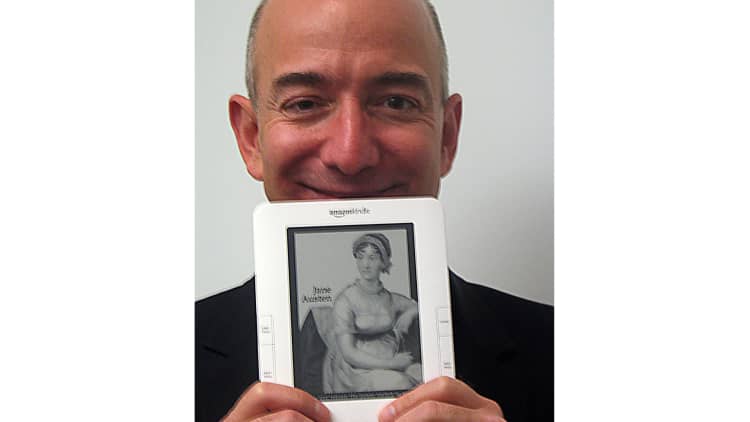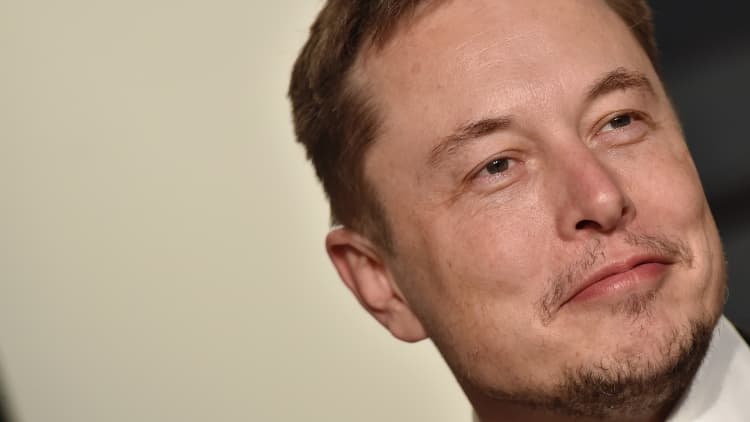Reading the encyclopedia and textbooks on physics and rocket propulsion helped Tesla and SpaceX CEO Elon Musk develop the skills he'd use to build multiple industry-transforming companies.
But it wasn't just technical reading that shaped him. It was reading fiction that encouraged Musk's desire to impact the world.
Musk isn't the only visionary to say fiction helped him find himself. Billionaire Mark Cuban says a novel helped him define his work ethic. According to a biography on Amazon founder and CEO Jeff Bezos, the tech leader learns more from novels than any other type of book.
Besides providing a great mental escape and having stress-reducing effects, reading literary fiction helps your brain in a few specific ways.
People who read literary fiction show higher levels of empathy and emotional intelligence, according to multiple studies. These social skills can make you a better communicator as well as a better team-player, personal traits many employers are looking for right now. Reading fiction also boosts your vocabulary, reasoning skills and language comprehension.
If you're interested in picking up a novel, either for fun or to exercise your brain, consider one of these six that shaped some of business's biggest names:
1. "Foundation" by Isaac Asimov
The first of Asimov's science fiction trilogy, "Foundation" follows the journey of one man as he tries to save the world from a fast-approaching descent into warfare by creating an alternate empire. The universe he creates, "Foundation," is a place where science, technology and the arts provide refuge. The protagonist, however, has to protect it from enemies who don't want humanity to succeed.
Asimov's books taught Musk that "civilizations move in cycles," according to a 2013 interview with The Guardian. That lesson encouraged the entrepreneur to pursue his radical ambitions.
"Given that this is the first time in 4.5 billion years where it's been possible for humanity to extend life beyond Earth," he says, "it seems like we'd be wise to act while the window was open and not count on the fact it will be open a long time."
2. "The Hitchhiker's Guide to the Galaxy" by Douglas Adams
At age 14, Musk was neck-deep in a self-described "existential crisis."
Grappling with the meaning of life, the preteen read philosophy books, which only further depressed him. So he turned to science fiction instead, picking up Adams' "The Hitchhiker's Guide to the Galaxy."
The story, which follows a man lost in space, made a big impression on Musk. In fact, he almost named his first Mars-bound rocket ship after one in the book, called "Heart of Gold."
Adams' intergalactic story begins when a man named Arthur Dent realizes his house and the planet he lives on are about to be destroyed. To escape, Dent hitches a ride off Earth into space, only to be tossed out, mid-trip, into the galaxy.
Adrift in space, Dent struggles to find meaning in life, an experience that resonated with Musk.
"It's quite positive, I think," Musk says. "It highlighted an important point, which is that a lot of times the question is harder than the answer."
3. "Lord of the Flies" by William Golding
Golding's classic novel on survival and competition left its mark on Musk.
"The heroes of the books I read ... always felt a duty to save the world," he tells The New Yorker.
Their struggle is a cautionary tale about human instinct. It's clear the warnings stood out to Musk. For instance, he has publicly spoken about the dangers of artificial intelligence in the hands of humans. In an open letter, he writes that people should "be worried."
4. "The Remains of the Day" by Kazuo Ishiguro
In biography "The Everything Store," author Brad Stone describes how books shaped Bezos' leadership style and way of thinking.
"Bezos has said he learns more from novels than nonfiction," Stone writes.
One of the books Bezos loves is this first-person narrative told by a butler recalling his time serving in the army during WWI, looking back on the sacrifices he had to make as well as the regrets he has. The theme of loyalty to your profession stands out.
5. "Orwell's Revenge" by Peter Huber
The science-fiction book stood out to Mark Zuckerberg for its take on the positive power of technology.
When Huber wrote this book, the internet was just beginning to radically transform the way people communicate. The science-fiction novel takes place in a dystopian future where humans who used to be controlled and enslaved by technology now use it to live a happy and free life.
"After seeing how history has actually played out, Huber's fiction describes how tools like the internet benefit people and change society for the better," Zuckerberg writes on his Facebook page.
6. "The Fountainhead" by Ayn Rand
Cuban named a yacht after Rand's objectivist classic, which is beloved by libertarians. In a 2006 interview with C-Span, he said he had read it "three complete times and an untold number of little snippets and segments."
"It encouraged me to think as an individual, take risks to reach my goals and [claim] responsibility for my successes and failures," he says.




